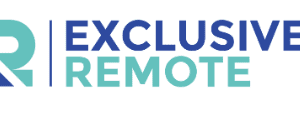One of the best methods to create a robust corporate culture and maintain your employees’ happiness is through employee referral programs. The employee recommendation program is picking more steam in staffing firms like remote staffing companies. They make it simple for you to hire new personnel and motivate your current staff to recommend friends and relatives.
The basics of an effective employee referral program are as follows:
Reward Referrals: Make it clear to your employees that they’ll receive bonuses or other incentives for referring new hires. This will incentivize them to refer talented candidates who they know will be a good fit for your company.
Encourage Participation: Allow employees to refer new hires by providing tools and resources like online forms or an employee referral manual. This way, everyone knows where to go and what to do when referring someone.
Educate Employees About the Program: Make sure everyone in your company knows the benefits of employee referrals and how to participate in the program correctly. This will help avoid any miscommunications or wrong referrals.
Handle Complaints Properly: If an employee has a negative experience with a referral, make sure you address it quickly and diplomatically. Doing so will ensure that the situation doesn’t spiral out of control.
What is an effective employee referral program?
Your company can attract and keep new employees with a strong employee referral program. A well-designed program can encourage employees to refer friends, colleagues, and family members who may be interested in working for your organization.
The critical part of any employee referral program in a remote staffing company is incentivizing referrals. Many programs offer rewards or bonus compensation for those who refer the most qualified candidates. Other common incentives include:
- Free or discounted enrollment in training programs.
- Access to company resources.
- Even the opportunity to work on special projects.
Your referral program should also be designed to ensure that all participants understand its rules and regulations. Inappropriate referrals (for example, those made by someone who has been fired or suspended from the organization) may result in disciplinary action being taken against the referrer.
Your remote staffing company may accomplish various objectives with the help of an efficient employee referral program, including luring in new hires, keeping hold of existing staff members, and building a solid network of reliable allies.
Benefits of an employee referral program
Your remote staffing company may build and keep a solid workforce by implementing an employee referral program. Here are a few advantages:
Increased productivity: A well-functioning employee referral program can encourage employees to refer friends, colleagues, or past co-workers who might be a good fit for your company. This can increase productivity as new employees get to know the company culture and start working efficiently.
Improved morale: Happy and thriving employees tend to be more productive and provide better service to their co-workers. A well-run employee referral program can boost confidence among current staff members and attract new hires who appreciate the optimistic spirit of collaboration within the office.
Reduced recruitment costs: Hiring fees and advertising campaigns are one of your most significant expenses when looking for new employees. By referring talented candidates you know already work at your company, you can significantly reduce the cost of recruiting new talent – which is always beneficial for businesses!
Essential tips for creating an employee referral program
Establish goals for your employee referral program: It is essential to have specific goals for your employee referral program to ensure it is effective. This can include increasing the number of referrals made, reducing the time it takes to hire someone through referrals, or improving company performance based on the hires made through referrals.
Encourage participation: One of the most critical aspects of an effective employee referral program is ensuring employees are encouraged to participate. This can be done by offering rewards or other incentives, such as increased bonuses or privileges, for referring qualified candidates. Additionally, managers should clarify to employees how their referral will be used and what they need to do to maximize its potential.
Set up a system for tracking referrals and reviews: It is important to regularly track your employee referral program’s progress and effectiveness to determine if it is achieving its goals. Additionally, review each referral’s qualifications before selecting them for a job opening to maximize the chances that a qualified candidate will be selected.
Get employees on board: One of the crucial steps in creating an effective employee referral program is getting your employees on board from the beginning. This can be done by making sure that everyone knows about the program and how to participate, as well as providing incentives for employees who refer new hires.
Make it easy for employees to refer colleagues: Another critical element of an effective employee referral program is making it easy for employees to refer their colleagues. This means setting up a system where referrals are automatically credited to participants and providing clear instructions on referring someone.
Encourage participation from all levels of your organization: An effective employee referral program should be implemented at all levels, from senior management to the lowest-level employees. This way, everyone involved understands and supports the program’s goals.
Stay focused on the goalposts: The ultimate goal of any employee referral program is to bring in new talent that will improve your business overall – no matter what that talent might be! While there are many ways to achieve this goal, always remember what is most important to you and your company, and adjust your strategy accordingly.
Checklist for an employee referral program
Here’s a checklist to keep in mind for developing an effective employee referral program.
Make it clear what referrals earn you: Make it easy for employees to refer their friends and colleagues and reward them accordingly. Set up a system where employees can earn points for referring someone new and then use those points to buy rewards (like free lunches or discounted service rates). This will help motivate employees to promote their friends and colleagues while also ensuring that you get good quality referrals.
Keep referral incentives fresh: If your employee referral program is successful, employees will likely start referring friends and family members on their own accord. However, if your program loses its appeal, you can always revive it by adding new referral incentives (like gift cards or discounts on products/services). This will keep the program top-of-mind for employees and ensure that the best referrals are coming in.
Ensure your referral process is easy to follow: The steps involved in referring someone new must be straightforward. This way, all parties involved (employee, friend/family member being referred, company) know exactly what needs to happen for the referral to be accepted.

































